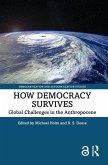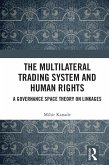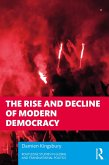In the poorest countries, such as Afghanistan, Haiti, and Mali, the United States has struggled to work with governments whose corruption and lack of capacity are increasingly seen to be the cause of instability and poverty. The development and security communities call for "good governance" to improve the rule of law, democratic accountability, and the delivery of public goods and services. The United States and other rich liberal democracies insist that this is the only legitimate model of governance. Yet poor governments cannot afford to govern according to these ideals and instead are compelled to rely more heavily on older, cheaper strategies of holding power, such as patronage and repression.
The unwillingness to admit that poor governments do and must govern differently has cost the United States and others inestimable blood and coin. Informed by years of fieldwork and drawing on practitioner work and academic scholarship in politics, economics, law, and history, this book explains the origins of poor governments in the formation of the modern state system and describes the way they govern. It argues that, surprisingly, the effort to stigmatize and criminalize the governance of the poor is both fruitless and destabilizing. The United States must pursue a more effective foreign policy to engage poor governments and acknowledge how they govern.
The unwillingness to admit that poor governments do and must govern differently has cost the United States and others inestimable blood and coin. Informed by years of fieldwork and drawing on practitioner work and academic scholarship in politics, economics, law, and history, this book explains the origins of poor governments in the formation of the modern state system and describes the way they govern. It argues that, surprisingly, the effort to stigmatize and criminalize the governance of the poor is both fruitless and destabilizing. The United States must pursue a more effective foreign policy to engage poor governments and acknowledge how they govern.
Dieser Download kann aus rechtlichen Gründen nur mit Rechnungsadresse in A, D ausgeliefert werden.









